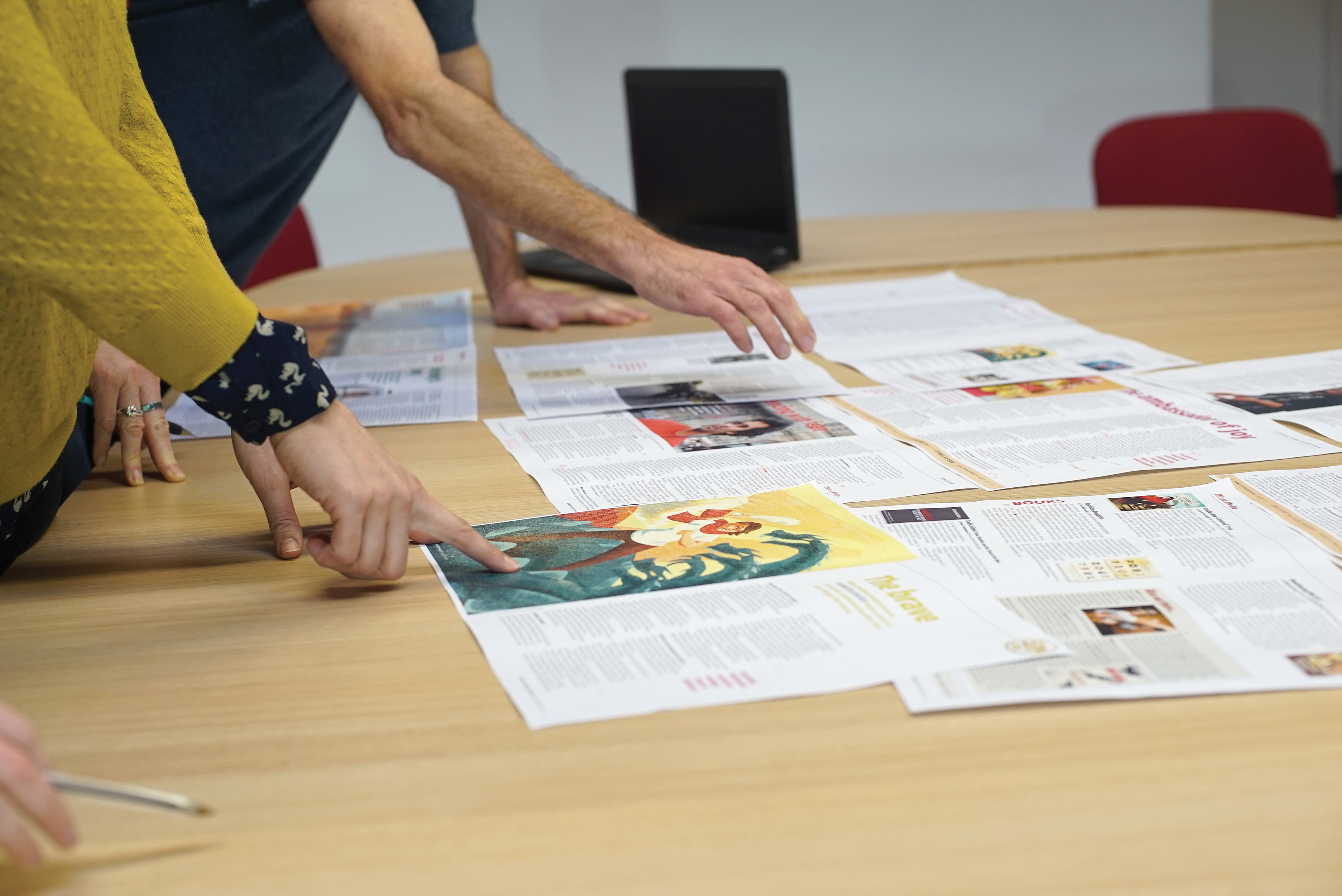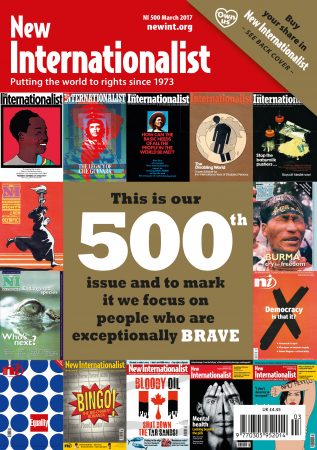Staff at the New Internationalist are getting ready to celebrate their 500th edition, almost a year after they decided to convert the trust which owns the magazine from a company to a co-operative society.
The decision, taken last April after discussions with advisory trustees, will enable supporters of the magazine to become members.
And co-editor Hazel Healy says the move is part of New Internationalist’s big plans for the future.
“It was always going to be a big decision to change structure,” she said. “This idea of opening up to become a global co-op was a big transfer of power and something we had to think about carefully before going down this road.”
The conversion process took a “surprisingly long time”, she added. The team started working on governance changes in June 2016 and the society was registered by the FCA at the end of February 2017.
Related: Media co-ops taking a risk for independence
Asked what advice she would give to other businesses looking to go through a similar process, she said: “Don’t underestimate the time it takes to think these things through and make sure somebody with contracts and legal language expertise is leading on it.
“On one level it is a big cultural change because we are used to being run as a worker co-op, where you make your own decisions. But that also means we are used to operating using co-operative principles, so involving our readers and supporters is a natural step in some ways.
“It’s unchartered territory. The real challenge is working out the mechanisms to make a global co-op work while keeping editorial independence.”
The changes will not affect the day-to-day work of the New Internationalist Publications, added Ms Healy.
“The wider group of new members will make sure the publication is keeping up its mission, much as our trust did in the past. The new structure enables investors to be responsible for the custodianship of the publication.

“The governance will be based on our new rules (drafted using a Somerset Rules template for a multi-stakeholder co-op, with the help of Alex Lawrie, development worker at Somerset Co-operative Community Land Trust) as well as a charter.”
The rules allow for two classes of members – user members who are the workers, and non-user members who are investors and supporters. On 1 March, the New Internationalist launched a share offer to raise £500,000.
“In effect, shareholders will become co-owners of the New Internationalist with voting rights over the publisher’s charter that enshrines its editorial policy and the way we work,” said Ms Healy.
Any changes to the charter will need the approval of both worker members and investors. Those members wishing to be more actively involved will be able to join the Common Council, which will act as a forum to engage the new stakeholders.
“At the end of this share offer we should have thousands of investors but we don’t yet know what proportion will want to be active involved,” she added.
Related: The New Internationalist launches share offer to raise £500,000
During the conversion process, New Internationalist received financial support from the Hive and Dave Boyle, director of the Community Shares Company.
The share offer will support investment in designing, launching and marketing a new-look publication as well as increasing multimedia content and developing the company’s ethical shop social enterprise.
“The magazine is still our flagship but it needs investment, rethinking and relaunching to appeal to as wide as audience as possible,” said Ms Healy. “We also want to invest in digital journalism and build the capacity to produce videos.
“The share offer will allow us, as a socially conscious publisher, to increase our reach. It’s also about returning to profit.
“We are investing in our growing ethical shop business as well. That will be able to subsidise the publishing side in the future. We are also investing in book publishing. It is a mixture of ambitious but also careful investment.”

The 500th edition of the magazine is published this month, and will focus on stories of bravery and what moves people to look after others.
“In a way, this ties up naturally with the community share offer, and pioneering this new model of media ownership,” said Ms Healy. “We are always talking about others coming together to change things – now it’s our turn.”
“The challenges are bigger than ever with Trump in White House and nationalists spreading and misinformation everywhere. Meanwhile a broken media model makes it harder than ever for independent publications like us to survive.
“Our journalism is needed more than ever but it is harder than ever for independent journalism to stay afloat in this climate. Our journalism and fresh perspectives can bring people together. There has never been a better time for it.”

